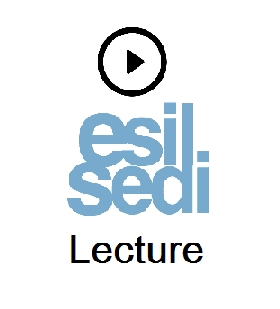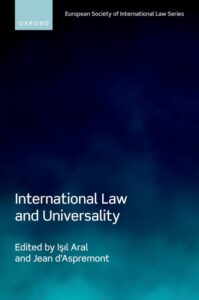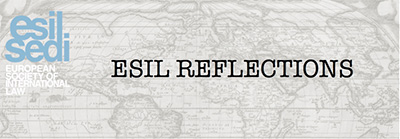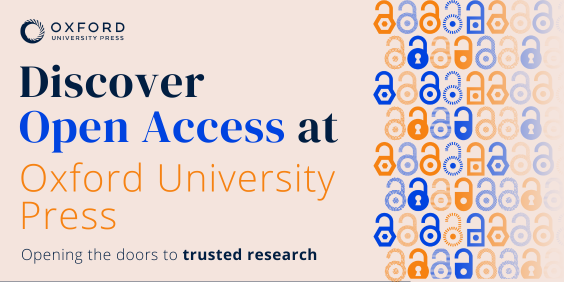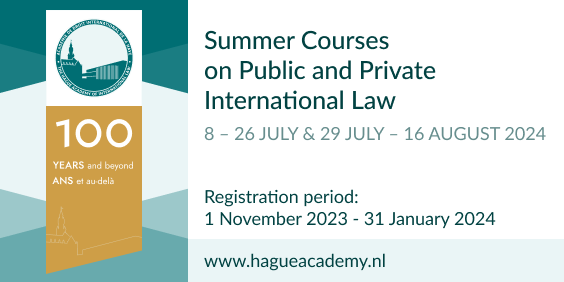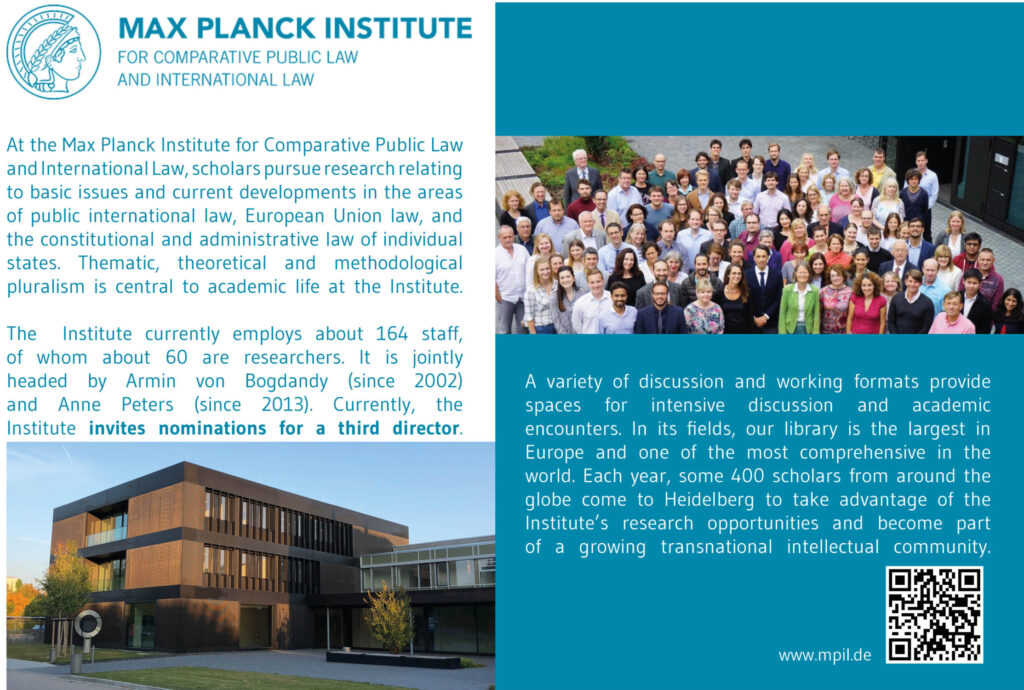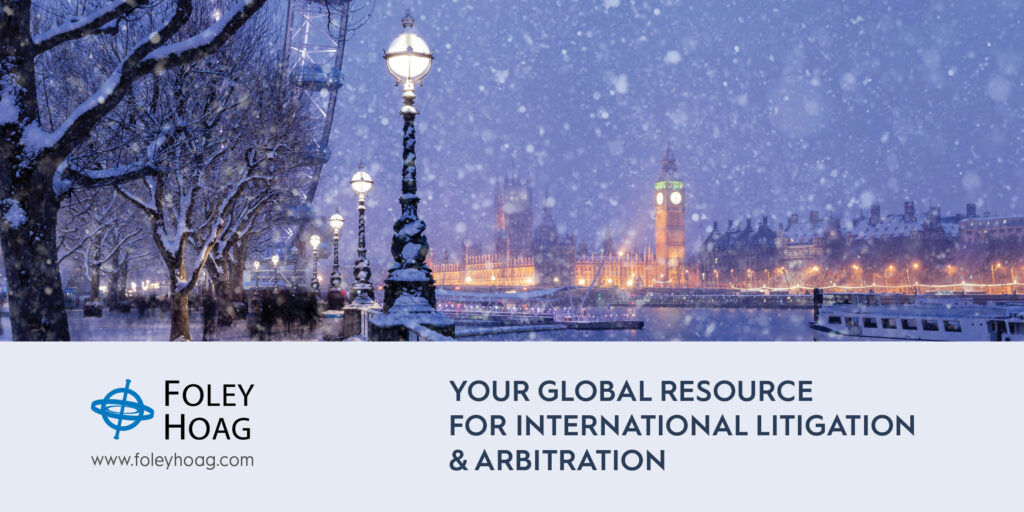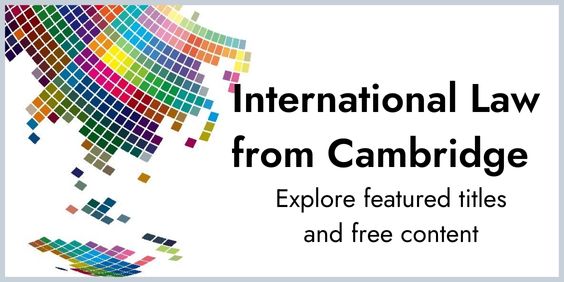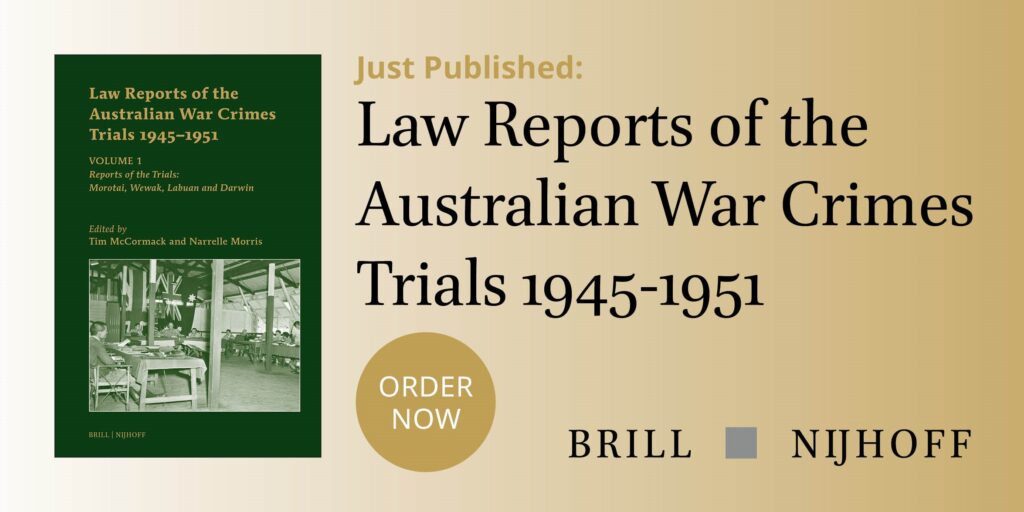ESIL Newsletter – Winter 2024
Editor: Helmut Aust (Freie Universität Berlin)
 In this issue
In this issue
1. Message of the President
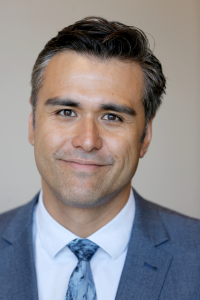
Dear ESIL members,
Our January 2024 Newsletter arrives against a backdrop of tension. International law has more than ever been in the news, not least the hearings earlier this month in relation to the provisional measures sought by South Africa against Israel in the highly symbolic setting of the Hague Peace Palace. International legal scholars and experts have been everywhere, giving interviews to media outlets, providing online commentary in blogs and social media, and publishing rapid-response editorials.
The horrific atrocities committed by Hamas terrorists on and since 7th October 2023 have shaken the world; and since then, global headlines have been dominated by Israel’s overwhelming and destructive military response. Attention has been turned away from other ongoing situations of suffering—amongst others Myanmar, Ukraine, Sudan, Yemen—as images of death and agony unfolding in Gaza have dominated public debate. I need not repeat further the disturbing and uncomfortable statistics, or recall the unfathomable images that haunt our days and nights.
Throughout this troubled period, members of the ESIL Board have observed ongoing developments very carefully. Though some learned societies have issued public statements taking various forms—condemning certain forms of conduct, calling for a ceasefire or compliance with certain international legal rules, inviting all members to sign—we have not done so. There were several reasons expressed for this restraint, in particular, a reluctance of some of us to adopt a single position on behalf of our members, many of whom hold deeply felt convictions both as to the ongoing conflict and its wider context. Given the diversity of the ESIL community, it was also felt by some on the Board that a brief statement could be perceived to disregard the legitimate sensitivities of our members, many of whom share connections with the most affected communities on the ground.
That said, ESIL’s Articles of Association set out, as one of our purposes, to contribute to the rule of law in international relations. On Friday 26th January, the ICJ issued its binding Order in the South Africa v Israel case, in which it has, amongst other things indicated provisional measures to prevent the commission or incitement of genocide, to enable the provision of humanitarian assistance, and to preserve evidence. The Court has also called upon all parties to the conflict in Gaza to observe their obligations under international humanitarian law, and for the immediate and unconditional release of the hostages abducted on 7th October. Views may diverge on the substance, or on whether this was our preferred outcome, but at a minimum, the Court clarifies certain baseline legal obligations; and it is hardly to overstep to draw attention to these, and to their importance.
What is more, our core mandate as a learned society carries with it a responsibility to appeal for respectful academic dialogue, however sensitive the issue. Many members of the Board—and of the wider Society—have shared their disillusionment with the acrimonious, often divisive tone that has characterised debate across the international press, social media and other fora. It is unconscionable to encourage the incitement of hatred and violence, call for the active disobedience of international legal rules protecting innocent civilians, or to celebrate the dehumanisation of victims from the ‘other side’.
For all this, I believe we can still engage with one another. If we wish to make the case for the importance of international law, or at the very least make it the subject of sustained reflection, our discussions need to retain a hint of mere civility. All members of our Society—and indeed of the international legal profession—should be able to enter into dialogue on the basis of mutual respect, and without fear of personal reprisals or cruelty. Despite our disagreements, we can show empathy and listen to one another without personal disparagement or vicious attacks. There should be no space for hatred or dehumanisation within ESIL.
It goes without saying that future events will build in space for academic debate on these sensitive legal issues. The efforts of individual ESIL members to disseminate knowledge and expertise and engage with wider society should be applauded. Moreover, as we embark on our third decade, and as announced in the autumn Newsletter, the Board remains engaged in a strategic consultation to reflect on the wider contribution of ESIL, both as a community of international legal scholars and as a potential gathering-point for co-operation and collaboration.
Gleider Hernández
ESIL President
2. Guest Editorial by Lucas Lixinski: Give Empathy (and Self-Determination) a Chance
In 1969, John Lennon released his first solo single, “Give Peace a Chance”. We still desperately need to do so, fifty-five years later. We also need to give empathy and self-determination a chance, as recent Indigenous rights developments in Australia show. International law and lawyers can be an important part of this change.
On October 14, 2023, Australians voted on whether there should be a self-determining First Nations (Aboriginal and Torres Strait Islander) body to act as an advisor to Australia’s Federal Parliament. This body, called the “Voice to Parliament”, is the result of the Uluru Statement from the Heart process, a decade-plus-long process of Indigenous consultation about different forms of recognition. First Nations people in Australia experience consistently the worst socio-economic outcomes of any populational group in the country, not to mention they are less than 4% of the population, but over 30% of those incarcerated. Proposals to address Indigenous inequality over the years ranged from symbolic recognition via a constitutional preamble, a formula Indigenous peoples in Australia rejected, to the creation of a body like the Voice.
To illustrate the Voice to Parliament in a way that might make more sense to European readers, the body would be akin to the early days of the European Parliament – to advise on legislative matters affecting Indigenous peoples. To do so, the Voice would be the conduit between First Nations people and peoples of Australia and law makers that are primarily and overwhelmingly white. The referendum vote was needed because, under Australian constitutional law, any amendments to the country’s 1900 constitution require a popular referendum.
The Voice was, in the Uluru process, the first in three sequential steps: Voice, Treaty, Truth. Why this sequencing? As many Indigenous leaders and advocates noted, the creation of an institutional framework would go much further than the usual formula of declaratory recognition of rights. It would be a mechanism to make Indigenous claims come alive, be part of the agenda. It was a seat at the proverbial table, a way to stop the casual (if often well-meaning) paternalism of talking about Indigenous peoples at Parliament, rather than with them. After the Voice, Indigenous peoples would seek treaties with the Australian government, and then engage in a truth-telling process about the ongoing impacts of colonialism in the country.
The 2007 United Nations Declaration on the Rights of Indigenous Peoples, which Australia endorsed after its initial vote against it, underpinned much of the Uluru process, and often came up in certain pockets of the Voice referendum discussions (but not in the mainstream media debate) to support the Voice and institution-building more broadly. The UNDRIP attempts to create space for self-determination, through the design of Indigenous-led institutions. The Voice was one such example.
The October 2023 referendum failed, and self-determination is now on hold as Indigenous people and peoples grieve, regroup, strategize. Why did it fail? Explanations are many, but one is that not many voters know Indigenous people, and therefore it was easy to separate their plight from everyday life. Non-Indigenous voters did not see the stakes of a decision to change the system, so status quo prevailed. In other words, as a nation we lacked empathy.
As we all regroup for 2024 and assess the world before us, international lawyers are well-positioned to help drive change. The failure of the Voice should not have a negative impact on Indigenous rights in Australia and beyond. Even if the referendum failed, the Uluru process is a terrific model of how to do self-determination in practice.
International law more broadly also works to trigger empathy. Empathy is (or at least should be) part of our bread and butter. After all, international law is built on trying to understand where other peoples stand on different issues, and searching mutually beneficial solutions. Sometimes the solution is to make room for others to self-determine their fates.
And, if we are to pursue empathy and make room for self-determination as its ultimate expression, the Voice process teaches us that we need to go beyond symbolic acts of recognition. International lawyers would do well to think more deeply about institutional design, and the ways the background norms that create and shape the operation of institutions affect the declaratory rights to which we subscribe. Declaring rights is a stepping stone, not the goal.
First Nations everywhere deserve our empathy. Peoples being oppressed by foreign aggression deserve our empathy. They also need help from international lawyers to leverage the vocabulary and tools of international law as means to clear obstacles and open better roads for self-determination. If we are serious about international law as a force for good, these peoples deserve that we give them a chance.
*Lucas Lixinski is Professor at the Faculty of Law & Justice, UNSW Sydney. He is an ESIL Member, Co-convener of the IG on the International Kaw of culture and a member of the Editorial Board of ESIL Reflections.
3. Meet an ESIL member – Markus P. Beham
You can find the video introducing Markus P. Beham, Associate Professor, Chair of Constitutional and Administrative Law, Public International Law, European and International Economic Law at the University of Passau, ESIL lifetime member and member of the Greening ESIL working group, here.
4. What’s Going On?
 2024 ESIL Annual Conference in Vilnius – LAST CHANCE TO SUBMIT YOUR ABSTRACT!
2024 ESIL Annual Conference in Vilnius – LAST CHANCE TO SUBMIT YOUR ABSTRACT!
The 19th ESIL Annual Conference (5-6 September 2024) will be hosted by the Law Faculty of Vilnius University in Lithuania with Go Vilnius, the Ministry of Foreign Affairs, and the Ministry of Justice of the Republic of Lithuania as partners of the conference. The conference will be preceded by Interest Group pre-conference workshops on 4 September 2024.
The theme of the annual conference is ‘Technological Change and International Law’. The theme is wide and has implications for all branches of international law ranging from human rights to dispute resolution. The keynote will be delivered by Simon Chesterman who is David Marshall Professor and Vice Provost (Educational Innovation) at the National University of Singapore. He is also the founding Dean of NUS College and serves as Senior Director of AI Governance. Professor Chesterman will open the conference with a discussion about where Europe stands in the world of technology: at the center or in the periphery.
The deadline for the submission of abstracts for a variety of agoras is 31 January 2024.
The preliminary programme is available. The early bird registration for the conference is already open.
Please visit the conference website for accommodation advice and follow @esil2024vilnius for updates.
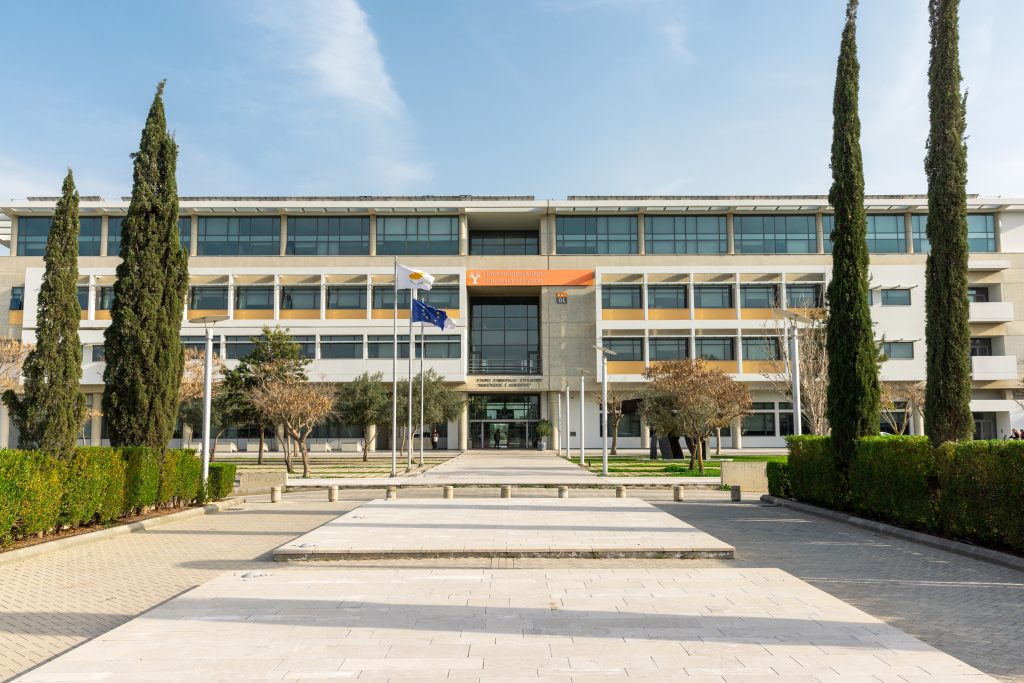 2024 ESIL Research Forum in Nicosia – REGISTER NOW!
2024 ESIL Research Forum in Nicosia – REGISTER NOW!
The 2024 ESIL Research Forum will take place on Thursday 18 and Friday 19 April 2024 and will be hosted by the Department of Law of the University of Cyprus. It addresses the topic: ‘Revisiting Interactions between Legal Orders’. In light of the urgency and a renewed momentum in delivering global public goods amidst global instability, the 2024 Research Forum aims to explore interactions between legal orders, revisiting the different kinds of interactions and how they emerge and operate. It also aims to unpack analytical frameworks through which to make sense of and assess these interactions.
The draft programme is now available and registration is open (deadline: 25 March 2024). Further information can be found on the research forum website.
If you are a speaker or chair, please note that you can still apply for an ESIL Travel or Carers’ Grant (deadline: 15 February 2024).
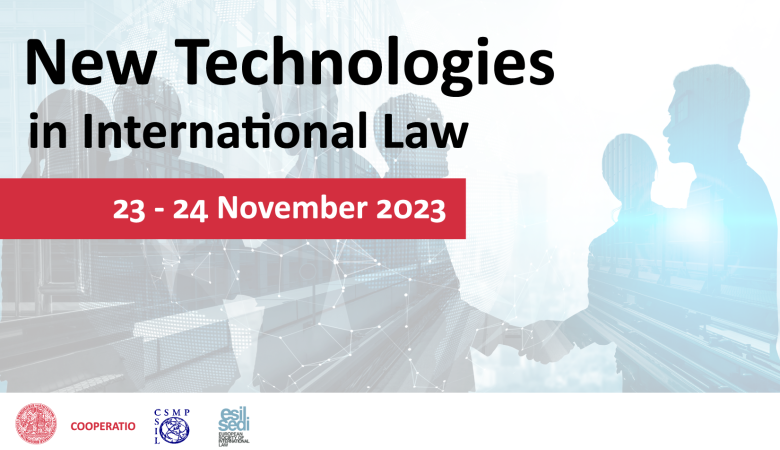 ESIL-Supported Conference on “New Technologies in International Law” in Prague – Read the report!
ESIL-Supported Conference on “New Technologies in International Law” in Prague – Read the report!
On 23 and 24 November 2023, at the premises of the Faculty of Law at Charles University in Prague, the Czech Republic, the ESIL supported international conference for the early-career researchers titled ‘New Technologies in International Law’ took place. The conference, organised by Dr. Alla Tymofeyeva from the home institution, focused on the challenges posed by modern technologies and artificial intelligence for international law. Deliberations revolved around the implications of new technologies for humanitarian law, human rights, environmental law, international criminal law, space law, and other areas. The individual contributions addressed issues such as fake news, the utilisation of technologies in sustainable agriculture, and the regulation of autonomous weaponry beyond human control. Read the full report here.
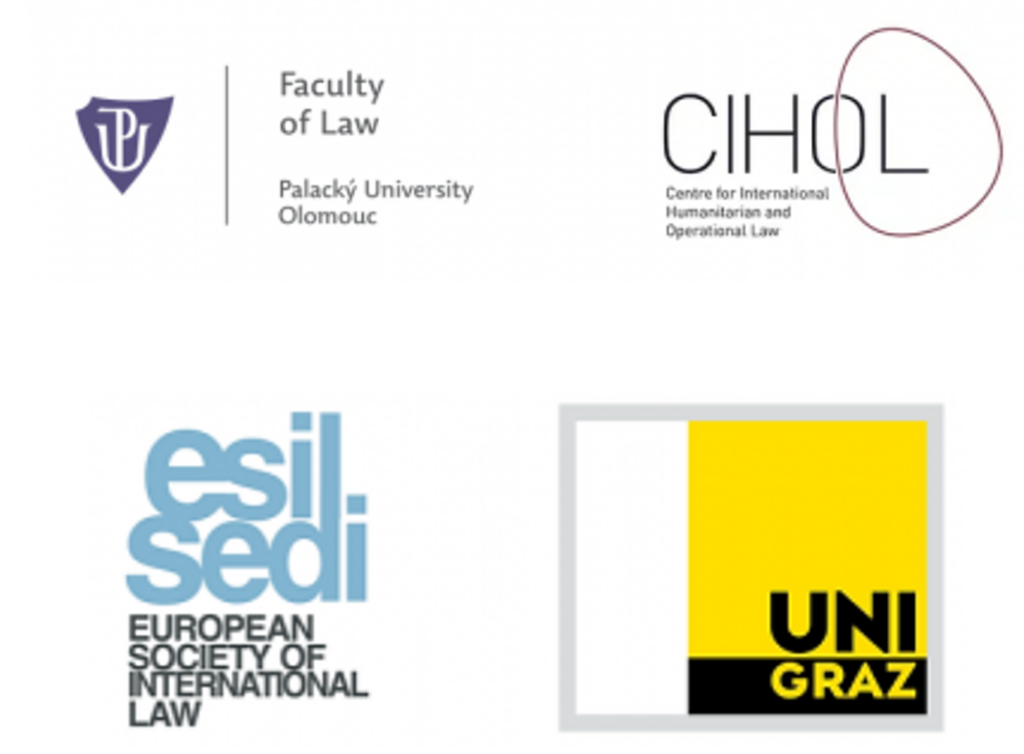 ESIL-Supported Conference on “International Law and the Regulation of Resort to Force: Exhaustion, Destruction, Rebirth?” in Olomouc – Read the report!
ESIL-Supported Conference on “International Law and the Regulation of Resort to Force: Exhaustion, Destruction, Rebirth?” in Olomouc – Read the report!
On 14 and 15 September 2023, the Centre for International Humanitarian and Operational Law hosted its much-anticipated conference: International Law and the Regulation of Resort to Force: Exhaustion, Destruction, Rebirth? Bringing together an assembly of some 70 experts, scholars and practitioners from across the world, the conference explored the intricate and ever-stretched prohibition of the use of military force in international law. Contributors explored a wide array of subjects, including the jus ad bellum regime, the relationship between the prohibition and its exceptions, the prohibition of force as a peremptory norm in international law, hybrid warfare, the need for UN Security Council reform and the interpretation of its resolutions, humanitarian intervention and the responsibility to protect doctrine, as well as the nuanced landscapes of individual and collective self-defence. Moreover, the role of cyber operations, the intersection of force with issues of territory, human rights and international humanitarian law, and the use of force by international organisations were also central topics of discussion. Read the full report here.
5. ESIL Lectures and Dialogues
The ESIL Lecture Series hosts broadcasts of presentations on international law topics held at partner institutions, allowing the presentation to reach a wider audience of ESIL members and non-members alike. ESIL lectures are available on the ESIL website and on the ESIL YouTube Channel.
To propose an ESIL lecture, please read the ESIL Conference Series Guidelines.
The European Society of International Law, AJIL Unbound & 3 Generations of Digital Human Rights Research Project invite you to the next ESIL Dialogue, part of the ESIL Lecture series, on “Ethical Considerations in Open-source Investigations”. The event will take place online on Monday 18 March 2024 at 17:30 CET.
Further details are available here. Should you wish to attend, please register via this link.
All previous ESIL Lectures are listed here.
6. ESIL Series
The European Society of International Law Series publishes high-quality volumes on the themes of ESIL Annual Conferences and ESIL joint events. The volumes include chapters that are based on selected papers presented at ESIL events. The chapters may have been revised to fit the theme and focus of the volume, and may have been complemented by additional chapters that address topics that were not fully explored during the events but that are essential for a full coverage of the theme. Volumes in the Series will be subject to a double-blind review process by a high-level editorial board in cooperation with the Series editors, and will be published by Oxford University Press.
The ESIL Book Series is adding a new book to its series International Law and Universality, edited by Işil Aral and Jean d’Aspremont. The book takes an unflinching look at the roles and functions played by the idea of universality in international legal discourses, as well as the narratives of progress that often accompany it. In doing so, it provides a critical appraisal of the mechanisms of inclusion and exclusion attendant to international law and its universalist discursive strategies. Universality is therefore not reduced to the question of the geographical outreach of international law but is instead understood in terms of boundaries. This entails examining how the idea of universality was developed in the dominant vernaculars of international law – primarily English and French – before being universalised and imposed upon international lawyers from all traditions.
This analysis simultaneously offers an opportunity to revisit the ideologies that constitute the identity of international lawyers today, as well as the socialisation and legal educational processes that international lawyers undergo. With an emphasis on the binaries that arise from the invocation of the idea of universality in international legal discourses, this book sheds new light on the idea of universality as a fraught site of contestation in international legal discourses.
The book will be out 24 March 2024. An online book launch will be held in early April 2024, which will be advertised later in spring.
For more information, including previously published titles, please visit the Series webpage.
If you are interested in putting together a volume for inclusion in the series, please contact the General Editors, Christian J. Tams and Veronika Fikfak.
7. ESIL Reflections
ESIL Reflections offer up-to-date reflections on current issues in international law. The Reflections cover a wide range of topics relating to current developments in international law and practice as well as theoretical reflections in a way that is relatively accessible to non-experts. The aim is to foster discussion between ESIL members and international law scholars and practitioners more generally – in Europe, but also beyond. ESIL Reflections are published on this website and distributed freely to ESIL members.
The editors are Patrycja Grzebyk (editor-in-chief), Lucas Lixinski, Alina Miron, Anne Saab and Peter-Tobias Stoll.
ESIL Reflections are short papers (3,000-4,000 words) that argue one particular point that may trigger further debate in the scientific community. Extensive referencing is to be avoided; references are only necessary in case of direct citations or when new or less well-known works are mentioned.
ESIL Members who have an interest in contributing are encouraged to do so. Please contact Patrycja Grzebyk (patrycja.grzebyk@uw.edu.pl) if you would like to contribute.
Copying and reprinting of ESIL Reflections is permitted with due acknowledgement. In such instances, please state: (parts of) this article first appeared as an ESIL Reflection (volume x, issue x), published by the European Society of International Law, www.esil-sedi.eu.
Latest publications:
- Rules of Change and the Nature of Customary International Law by Katie A. Johnston
- Change of Peremptory Norms of General International Law (Jus Cogens) by Thomas Kleinlein
8. News from Interest Groups
 ESIL Interest Groups are a vital part of the Society’s success and activities. A list of the groups is available on the ESIL website.
ESIL Interest Groups are a vital part of the Society’s success and activities. A list of the groups is available on the ESIL website.
Interest Group on Social Sciences and International Law
The American Society of International Law’s International Law and Social Science Interest Group and the European Society of International Law’s Interest Group on Social Sciences and International Law are co-sponsoring the International Law and Social Science Speakers Series for Spring 2024. All events will take place online, for one hour beginning at 7:00 a.m. Pacific time; 10 a.m. Eastern time in the U.S.; and 4:00 p.m. Central European time in Europe. Further details are available in the series schedule.
Interest Group on Peace and Security
The IGPS has recently launched a podcast, which features academics discussing their recent work on topical issues. The first episode featured Dr Ezequiel Heffes, on the topic of detention in armed conflict, and the second focused on asset freezing in relation to the Russia-Ukraine war, in conversation with Dr Philipp Janig. Both episodes are now available for download on Spotify.
On 30 August 2023, the IGPS organized a pre-conference workshop in Aix-en Provence, France, at the annual ESIL conference. The workshop featured five presentations on cross-cutting issues in peace and security, from a range of disciplinary perspectives, and it was very well attended.
Interest Group on International Environmental Law
The ESIL Interest Group on International Environmental Law, in collaboration with the University of Ljubljana, West Virginia University, the American Society of International Law Interest Group on International Environmental Law, and gLAWcal, organized a conference “Persistent Imbalances in International Trade and the Prospects for Sustainable Development, with a focus on developing countries”. The conference took place in Ljubljana on 30 June – 1 July 2023. It addressed the crisis in the WTO institutional arrangement, highlighting persistent imbalances in international trade that have excluded many regions and social groups. Structural issues caused by domestic and international policy measures remain unaddressed, leading to a reliance on unilateral measures that deepen the crisis. After the failed Doha round, efforts for ‘development-friendly’ trade talks were replaced by bilateral agreements, the rise of BRICS countries, and trade wars between major blocs. The conference aimed at exploring ways to redefine international trade rules for more inclusive and sustainable development, reconciling international openness with national and regional policy space and promoting the coexistence of different economic and social models in the pursuit of socially inclusive and environmentally friendly global trade deals.
Interest Group on International Business and Human Rights
The IG is very pleased to welcome two new members to the IG Coordinating Committee: Nina Hart and Cristina Popa Tache.
Nina is a PhD candidate at King’s College London, Dickson Poon School of Law, as well as a New York qualified lawyer and qualified solicitor for England and Wales. She has previous experience serving as legal counsel for treaty disputes and negotiations and advising policy-makers in the field of international law, including among others international human rights law, international economic law and international criminal law.
Cristina is Associate Professor of public international law at the Law Department of the Bucharest University of Economic Studies, with expertise in various areas of international investment law, human rights, business law, as well as communication and new technologies and transdisciplinarity. She is also researcher member of Centre International de Recherches et Études Transdisciplinaires (CIRET), Paris and Vice-President of Research and International Relations of the Society of Juridical and Administrative Sciences, Adjuris, Editor at Taylor & Francis and Routledge, and Editor-in-chief of the International Investment Law Journal by Adjuris.
Both Cristina and Nina will join Emanuela Orlando and Belen Olmos Giupponi as members of the IG on International Business and Human Rights Coordinating Committee.
9. ESIL Membership Renewal – Renew now for 2024 if you haven’t done so already!
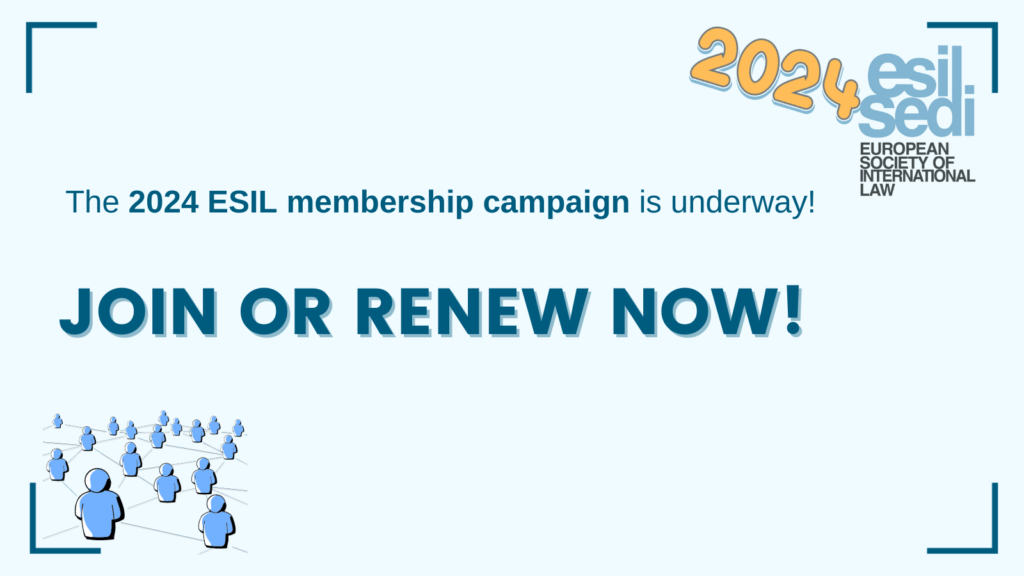 The ESIL membership is for the calendar year, from January to December. If you are not a 5-year member or a lifetime member, or if you have not yet responded to the recent reminder emails, it is now time to pay your fees for 2024. You are strongly encouraged to do so as soon as possible in order to be included in our publications and in the 2024 ESIL Interest Group membership lists.
The ESIL membership is for the calendar year, from January to December. If you are not a 5-year member or a lifetime member, or if you have not yet responded to the recent reminder emails, it is now time to pay your fees for 2024. You are strongly encouraged to do so as soon as possible in order to be included in our publications and in the 2024 ESIL Interest Group membership lists.
Paying the fee is quick and easy: access the online membership platform, select your preferred membership option, log in to your personal account and proceed to payment.
There are now 21 ESIL Interest Groups; make sure you have indicated all those you wish to join. You can join or leave any group at any time just by ticking the box next to the IG. You can also join the ESIL Early-Career Network by ticking the dedicated box.
Members who wish to make a commitment to 5-year or to a lifetime membership are very welcome to do so.



